Edo 2024: What Olumide Akpata should know (II)
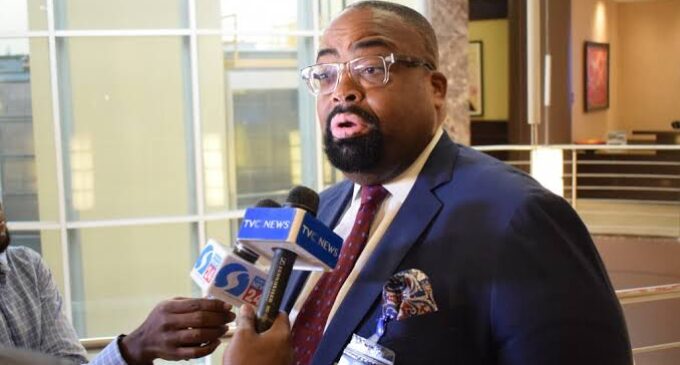
By now, Olumide Akpata should be going around the state, meeting with and introducing himself to key politicians, businessmen, religious and traditional leaders and other important stakeholders in all the LGAs. Known as consultation, these visits constitute the first round of campaign (well, unofficial campaign in the sense that the campaign season is yet to be officially flagged off by INEC), but it is, nonetheless, very important and not cheap to execute.
The aspirant will give cash and drinks at every stop, and the hosts will pray for him and assure him of their support, depending on how pleased they are with the size of his envelopes and the assortment of the drinks he brought. Note that the same prayers would be offered to all the other aspirants who visit.
Even if the host is a member of the Labour Party, he may open his doors and receive aspirants from other parties in the name of ‘’we are all brothers. Politics will not separate us’’. But in reality, the envelopes and the drinks are the attraction. As one traditional ruler told a visiting aspirant to my hearing, ‘’my job is to receive all aspirants, pray for them and bless them, but it is up to God in Heaven to choose one of them and make him governor’’.
Consultations usually last till the beginning of the primaries. Each party decides whether to do a direct or indirect primary; the former being more easily manipulated by the party executives than the latter. If the aspirant does not have a strong standing with the party leaders in the state, he should go for the indirect primary. For the indirect, he will have to spend money to secure the delegates’ list. There are usually the ‘’Abuja List’’ and the ‘’List from the State party Office’’.
May God help that aspirant who is not favoured by the Abuja List. Sometimes, trying to harmonise the two lists could tear the party apart and this usually results in pre-election court cases. In 2019, Prof Pat Utomi contested for governor of Delta State. Utomi reported later that on the primary day, he was driving around looking for the venue of the primary election when he heard on the car radio that the event had been concluded and the winner’s name announced. Clearly, Utomi was not favoured by the party leaders. Party primaries have become very complicated and corruption-ridden components of our party politics.
By the Electoral Law, it is the national headquarters of the party that should conduct party primaries; and more often than not, it is their decision that stands, even if the state executives have a different opinion. But it is the state executives who work with the candidates to campaign for the election. So, if you win the party’s ticket, but you fail to secure the backing of your state executives, you could suffer calamitous back-stabbing. In the last election, I knew of one state chairman of a party who openly campaigned for another party because his party’s candidate was not generous enough! It is, however, important for an aspirant to understand how delegates emerge from the different congresses that would be conducted before the primaries. A smart and wealthy politician can influence the process, and therefore have full control of ‘’the list’’.
After winning the party primary election, the aspirant becomes the candidate. This is typical of a Nigerian characterization as there is no other country in which this demarcation exists. If Akpata wins the Labour Party ticket, he will go on to face Ighodalo of the PDP and the APC candidate. Wherever the APC candidate comes from will have some influence on the outcome of the general election. If he is from central, that means he will split the vote from that region with Ighodalo, the PDP candidate, and if he is from south, he and Akpata will share the votes in that zone. But since the most influential APC leader in Edo, Senator Adams Oshiomhole, is from Edo North, my sense is that the APC candidate will emerge from north. Already, Clem Agba, a former commissioner in Oshiomhole’s cabinet who also served in Buhari’s cabinet as minister of state for budget and national planning, is preparing to announce his bid soon. Agba enjoys the support of the former labour leader.
While Ighodalo will enjoy the support and protection of the governor, Akpata will fend for himself, grappling with a series of unexpected challenges that will crop up as the campaigns progress. He may be denied use of government facilities like school premises, parks or public arenas on which to stage his campaign rallies. Sponsored thugs could be sent to disrupt his rallies or his billboards may be torn down. Even the police may turn against him if he is seen as a serious contender who may cause an upset. Of course, the state-owned media will never carry any positive news about him. Everything depends on how fair Gov. Obaseki wants to be. Although the Labour Party performed very well in Edo state during the last presidential election, Akpata should note that governorship elections are typically influenced by local issues.
First, the voters will ask many questions about the candidate; his family background and his personal contributions to the state. What has been the level of his philanthropic investments in the people? Does he have a statewide empowerment programme like a scholarship scheme? Has he been extending help to the widows; market women; orphans and the poor in Edo state? In Akwa Ibom state, governorship candidates are assessed by the level of their philanthropy and economic investments in the state. Although Umo Eno was assailed by many certificate scandals which the courts eventually dismissed, his credentials as a major employer of labour through his hotel chain helped him considerably.
Funding the campaign is always a major challenge for an opposition candidate. He should, first of all, put together a campaign team, headed by a competent manager, usually referred to as director-general, who preferably should be a former senator or house of representatives member. It pays for the DG to have cognate experience in contesting elections. The campaign organisation will have departments like security; media & communication; venue; transport; finance; protocol, etc. A governorship campaign costs a lot of money (between N5 billion and N10 billion) and this is where the government-sponsored candidate has a major advantage over the other candidates.
Sooner than later, the opposition candidate runs low on cash, and he’d be surprised that his friends and associates, who had been pushing him on, would not help much in contributing money. One rich guy blatantly refused to help his friend financially. When I asked why, he answered, ‘’I cannot see his path to victory’’. In other words, the more likely your chances of success, the more funds you can raise; and without money, your chances dim and dim.
Finally, Edo is lucky to have successful professionals as the main candidates for next year’s election. I am of the opinion that if a critical mass of successful, competent and honest professionals makes their way into politics, they would make a positive impact.
Views expressed by contributors are strictly personal and not of TheCable.

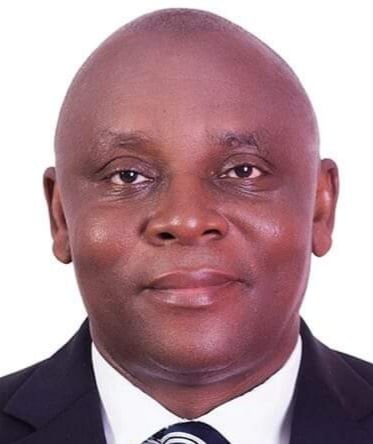


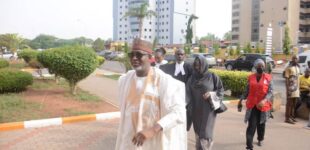

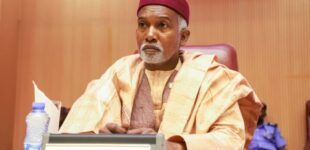
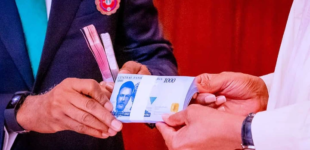
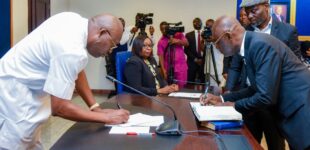
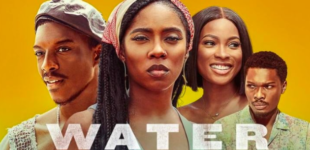


There are no comments at the moment, do you want to add one?
Write a comment